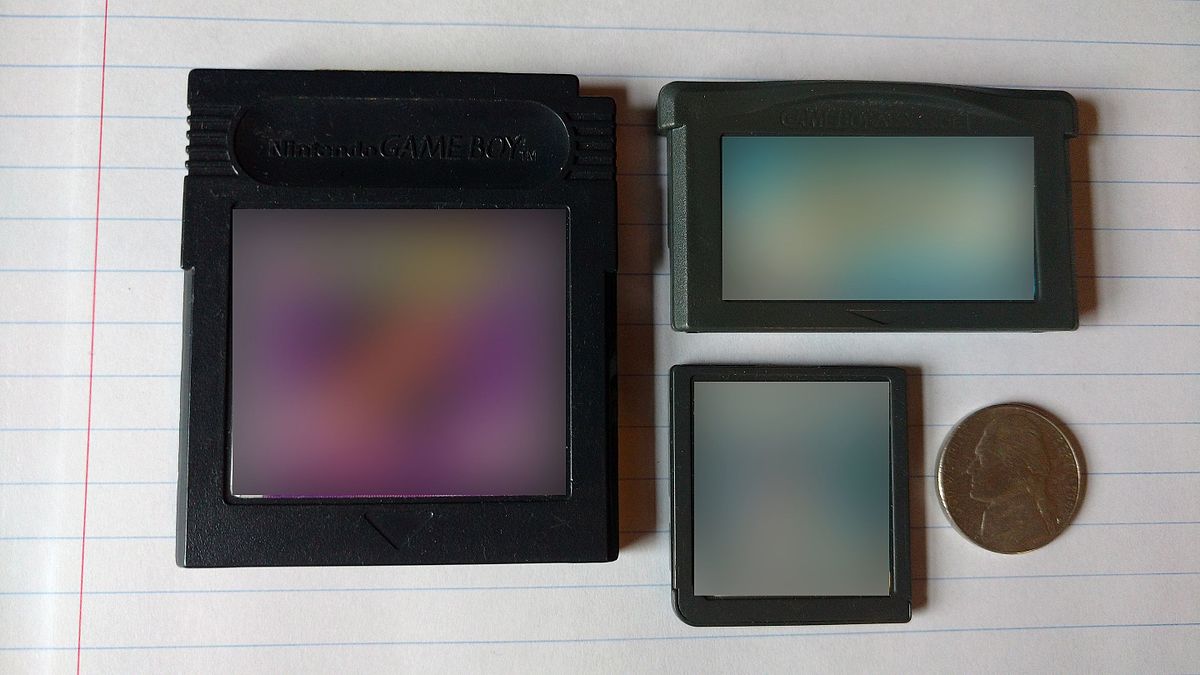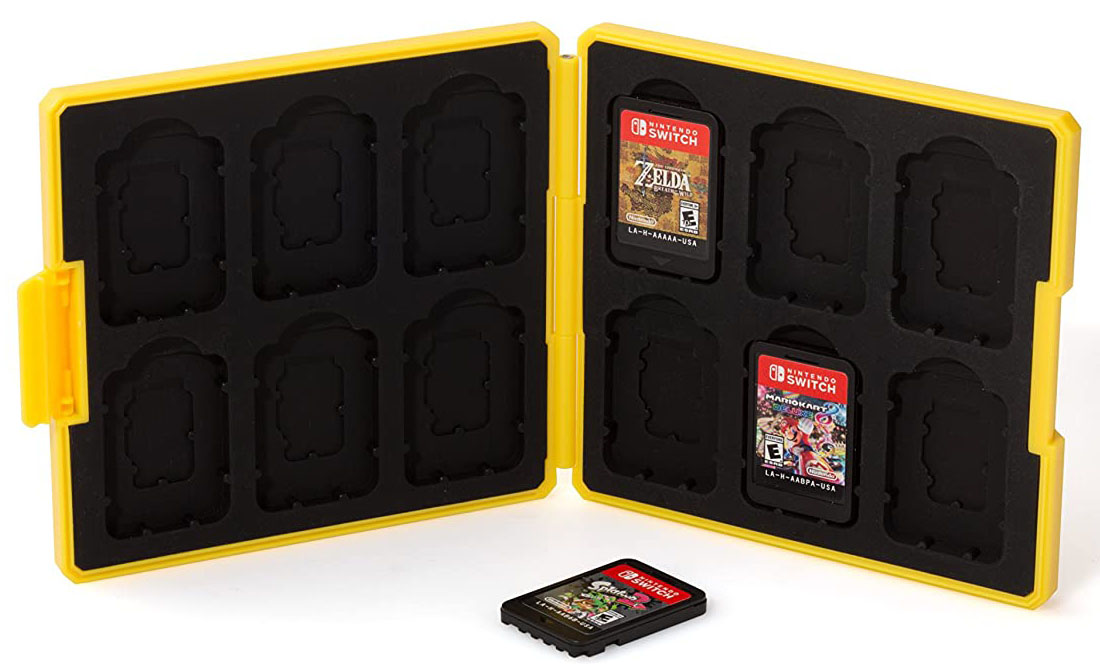Nintendo Switch 64GB cartridges are also in the works. Commercial versions have been repeatedly delayed—first pushed back to 2019, and subsequently to some ambiguous point in 2020. As more and more big games come to Nintendo's mainline console, it's becoming increasingly clear that bigger carts are sorely needed. Nintendo has come a long way with its games and consoles, but one Redditor discovered just how much by comparing the Nintendo 64 and the Nintendo Switch storage capacity. The result: we now have the technology to launch every game from the classic Nintendo console on one cartridge for the Switch.
The cartridges that the Switch use load faster than the discs other consoles use, because the data is on a ROM chip that has about the same read speed as an SSD. To put it into perspective, the internal memory of the Switch comes in at around 300 MB/s, the SD drive averages 60 MB/s and the cartridge averages 100 MB/s.
The Nintendo Switch has been critiqued in some understandable ways. The launch lineup is paltry, the console only outputs to a max of 1080p and the battery life could be better. But few expected the Nintendo Switch's new game cartridges to literally leave a bad taste in reviewers' mouths.
Nintendo Switch Cartridge Hack
Nintendo's official response to the news that Switch games taste bad was pretty straightforward:
'To avoid the possibility of accidental ingestion, keep the game card away from young children,' the company said. 'A bittering agent (Denatonium Benzoate) has also been applied to the game card. This bittering agent is non-toxic.'
So what the heck is Denatonium Benzoate and why is it all over your new video games? Here's what you need to know about the surprisingly common chemical compound.
Nintendo Switch taste: What is Denatonium Benzoate and why is it on my game cartridges?

According to the official website for Bitrex — also known asDenatonium Benzoate — is used to add bitter taste to things that look tempting to swallow. So when children — or game reviewers — inevitably put the swallowable item in their mouth, they're instantly compelled to spit it out.
You can find the chemical compound included in things like rubbing alcohol and cosmetics to prevent ingestion. It's also used in products specifically meant to stop people from nail biting or thumb sucking. According to the folks who make it — and the Guinness Book of World Records — it's the 'bitterest substance known to man, woman or child.'
Nintendo Switch taste: We're sure this is non-toxic?
The Bitrex website claims that the mixture is completely harmless on its own. 'It just tastes really, really horrible,' the company adds.
But before you go ahead and lick that game cartridge maybe you should ask for a second opinion.
According to a report from the Maryland Poison Center, the harmfulness of Denatonium Benzoate is low. When measuring toxicity, the study found 'a low toxicity profile.' However, other reports found that Bitrex can actually cause eye irritation, skin irritation, lung toxicity and more depending on how much you intake.
Nintendo Switch taste: But why?
As shown in the tweet above, Mic tech editor Alexis Kleinman tasted the Nintendo Switch cartridge for the sake of journalism and confirmed that it tastes absolutely nasty. To ensure a fair test, she also tasted a copy of Pokémon Sun and Moon for the 3DS, describing the older game cartridge as plasticky but inoffensive.
Nintendo's official comment didn't explain why the company opted to add Bitrex to its game cartridges just now. It seems likely that the Switch games got a bitter coating because they're smaller than previous cartridges, and therefore easier to swallow by mistake.
When we asked if that was the reason, a Nintendo representative hinted that the answer was yes, but wouldn't give us direct confirmation. So you'll have to take our word for it, even if this entire situation is a little hard to swallow.
Check out more Nintendo Switch news!

Looking for more Nintendo Switch news? Check out our comparison photos sizing up the Switch to the Wii U GamePad (part one and part two) and the best way to get alerts when new stock arrives. Then take a look at a leaked video of the Nintendo Switch menu interface and dark mode features.


It's a common occurrence for Nintendo Switch owners: a popular multi-platform game is getting a Switch port, and finally, you can experience it for yourself on Nintendo's innovative hybrid console. You can play it on your TV. You can play it on the bus. You imagine yourself gaming without barriers. 'Hooray!', you say.
And then you see the price tag.
How can it be that a game — one that Xbox One and PlayStation 4 owners have been playing for years — is like $40 more expensive on the Nintendo Switch? And how is that true even if you're buying a digital version of the game on the Nintendo eShop? The answer has to do with Nintendo's choice to use a proprietary cartridge format — and also has to do with a related Nintendo eShop policy.
Compared to discs, Nintendo Switch cartridges are not easy to produce in mass quantities. On one hand, a Switch cartridge is flash storage, not unlike an SD card. On the other, Switch cartridges have a unique shape and size. Discs — whether they're CDs, DVDs, or Blu-Rays — pretty much take on the same form. The Nintendo Switch cartridge format, however, is a unique beast. If a Switch cartridge looked like an SD card, Nintendo could take advantage of the countless manufacturing facilities pumping those cards out. But it's not. So Nintendo must work with partners to create this very special type of flash storage card, and that makes the process more expensive.
It's the downside of choosing a proprietary storage format. And it's why you sometimes see new Switch games that cost $10+ more than their Xbox One and PlayStation 4 counterparts.
The cost of a Switch cartridge becomes an even bigger factor when you consider the size of different games. According to Eurogamer, Nintendo Switch cartridges come in 1 GB, 2 GB, 4 GB, 8 GB, 16 GB, and 32 GB flavors. The smaller-capacity cartridges don't cost as much as the larger ones, which works out for tinier games. Then again, those games are often indie titles that opt for an eShop-only release, negating the cartridge entirely.

So what of the eShop, then? Why is it that games releasing both physically and digitally on the Switch cost the same at GameStop as they do on the eShop? That's also on Nintendo, and the company's desire to keep game stores and big-box retailers competitive.
The same Eurogamer piece cited above mentions a policy that Nintendo has for any games that release on a Nintendo Switch cartridge and in the eShop, and that policy is this: the eShop version of the game can't be cheaper. Nintendo relies on the GameStops, the Amazons, and the Best Buys of the world to promote Nintendo Switch hardware and Nintendo Switch games. Physical copies of a game take up valuable shelf space at retailers, and the fact is, stores would be less inclined to afford Nintendo that space if players could simply jump on the eShop and get the same game at a better price.
Nintendo Switch Cartridges Eat
As gaming goes more and more digital, this might not be a reality that a company like Nintendo has to face in the future. But for now, Nintendo has to keep its retail partners happy. Which means you don't save any money by cutting out the cartridge middleman.
Nintendo Switch Cartridge Cost
We're nearly two years in to the Nintendo Switch's life and, unfortunately, it doesn't appear that the 'Switch Tax' (as some call it) is going away anytime soon. There's no word that Nintendo has been able to drive down the cost of manufacturing Nintendo Switch cartridges, which would in turn allow Switch games to be priced more competitively. Meanwhile, games are only getting bigger. Nintendo has plans to introduce a 64 GB Nintendo Switch cartridge sometime this year, paving the way for bigger titles to show up on the platform. And that'll undoubtedly make those games even more expensive — whether you buy a physical copy or download one.
Nintendo Switch Cartridge
The Nintendo Switch is a delightful little machine, with more than enough Nintendo exclusives to justify a purchase at this point. But most multi-platform games are still cheaper — and in most cases, better looking — on other platforms. And it doesn't look like that fact is going to change anytime soon.
